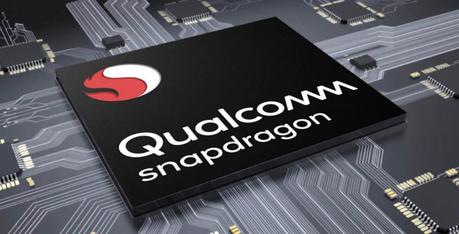
After making a brief appearance at the end of 2018, Qualcomm's oddly named Snapdragon 8cx turned up again at Computex 2019 in Taipei. This time around, the 8cx made a case for the future of ARM-based laptops.
With the help of PCMark 10 - a benchmark designed to emulate a typical office environment - Qualcomm showed the Snapdragon 8cx besting a quad-core Intel Core i5 8250U CPU in speed and power efficiency.
For the test benches, both sides are equipped with 8GB of RAM, 256GB NVMe SSD storage, near identical resolution displays, and the same 49 Whr battery. The Qualcomm reference laptop runs fanless and has the latest Windows 10 version, 1903. The Intel testbench system, on the other hand, has a fan and runs an older 1809 version of the Windows 10, according to XDA Developers.
PCMark 10 uses apps from the Microsoft Office suite in its test, but It is essential to know they aren't natively written for ARM processors. In other words, the Snapdragon 8cx was running them using a slower emulation process. Despite the disadvantage, the 8cx still won.
According to the results published by Qualcomm, the Snapdragon 8cx handily bested the i5-8250U in PCMark as well as in the 'Night Raid' graphics benchmark, all while maintaining better battery life.
While XDA says it saw even better results on the ground at Computex, it's important to take all this with a grain of salt. For one, the 8cx computer has a lower-res display, which could attribute to its better performance in the gaming benchmark. There's also the matter of different Windows versions, although it's not clear how significant of an impact this could have on performance. Ultimately, these results - impressive as they are - should be taken with a grain of salt.
What does this mean for consumers?
At this point, Intel is still working to migrate its x86 CPUs from the 14nm process to its overdue 10nm node. AMD, which has a minimal presence in the laptop market, just secured a broader partnership with many device manufacturers around the world.
Compared to them, Qualcomm is uniquely positioned in offering an alternative solution that has an inherent advantage in connectivity and power efficiency. Again, the Snapdragon 8cx shows that, at least in benchmarks, it can provide similar performance to that of an x86 Intel quad-core processor, and use less battery.
With the advent of 5G in the coming years and the rapid advancement in ARM-based CPU technology, Qualcomm may have positioned itself as a strong candidate for powering future lightweight, decently powerful ultrabooks that are always connected. Right now, it's up to the software makers, traditionally trenched in the x86 design, to adjust for more powerful ARM devices capable of carrying out daily tasks.
Source: XDA Developers
